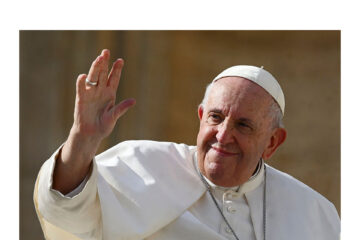Hertta-Maria Amutenja
The death of Founding President Sam Nujoma has sparked renewed questions over the long-term use of state-funded offices allocated to former heads of state.
The Popular Democratic Movement’s (PDM) leader, McHenry Venaani, on Wednesday submitted a series of questions to Prime Minister Elijah Ngurare, seeking clarification on the future use and policy governing these facilities.
The office used by Nujoma since his retirement in 2005 is located in Windhoek North near the Ministry of Home Affairs and was constructed at a cost of N$45 million.
With both Nujoma and Geingob now deceased, Venaani questioned whether the government plans to revisit policies on such infrastructure in light of current economic challenges.
“The passing of two revered former heads of state raises practical questions about the continued utility and future management of their state-provided office infrastructure,” said Venaani.
The Presidential Emoluments and Pensions Act of 2004 entitles former presidents to a range of benefits, including office space, security, transportation, and staff support—all funded by taxpayers.
“Can the government repurpose the offices of the late former Presidents to accommodate the remaining former Presidents, thereby minimising costs associated with office space?,” questioned Venaani.
He noted that while Nujoma had a dedicated office building, former President Hifikepunye Pohamba currently rents office space on the 7th floor of Alexander Forbes House in central Windhoek, and former President Nangolo Mbumba does not yet have an office despite being entitled to one.
“Although we have rightly chosen to honour former heads of state, and in doing so, acknowledge their service to our country, it is equally important that such honour must be balanced against principles of fiscal responsibility,” he said.
Venaani is seeking clarification on whether it remains government policy to construct separate offices for every former president and whether this model is sustainable.
He also requested a detailed breakdown of the annual expenditure on the offices of former presidents, including staff salaries, utilities, security, and maintenance costs.
He also wants to know if any cost-benefit analysis has been done on the possible construction of an office for Mbumba and whether the government plans to amend the Former Presidents’ Pension and Other Benefits Act to reflect current economic realities.
Venaani’s questions have prompted broader concerns around whether the government intends to build memorials or national heritage shrines for other declared heroes such as Hendrik Witbooi, Nehale lya Mpingana, Mandume ya Ndemufayo, and others, similar to the shrine that was constructed for Chief Hosea Kutako.
The question now remains on the government’s approach to national legacy projects, on whether Parliament approved the construction of the shrine for Chief Hosea Kutako or whether it was implemented by executive directive.
The Windhoek Observer contacted the National Heritage Council’s director, Erica Ndalikokule, to ask whether any sites associated with Nujoma will be declared national heritage locations or if there are any legacy projects underway.
Ndalikokule replied briefly, stating the paper “should be patient,” without offering further detail.




